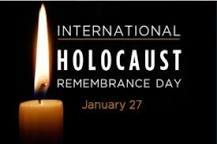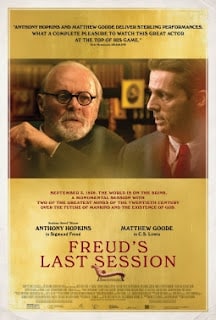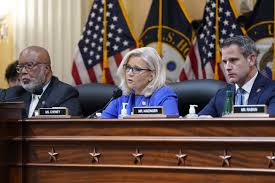January 27, the anniversary of the liberation of the Nazi concentration camp Auschwitz-Birkenau by the Soviet Army in 1945, has been observed since 2005 as International Holocaust Remembrance Day. Although Auschwitz started out as a POW camp for Polish prisoners, it eventually became perhaps most famous for its part in the Nazis’ « Final Solution. » Some 1.1 million people were murdered at Auschwitz, a place Pope Saint John Paul II would later (1979) call the « Golgotha of the modern world. » The largest group of those murdered at Auschwitz was 960,000 Jews. All told, some six million Jews were murdered in the state-sponsored extermination, now known as the Holocaust, also known as Hurban (« Destruction, » a word used originally to refer to the destruction of the Temple in Jerusalem) and, more familiarly, as Shoah (« Catastrophe »).
That, of course, belongs to history, albeit very recent history. The Holocaust would not have been possible were it not for the Second World War, and it was historically unique in important respects. That said, it can also be seen in relation to a longer, tragic history of anti-Semitism, particularly in Christian Europe. Thus, the 20th-century American Protestant theological Reinhold Niebuhr spoke of « the taint with which centuries of Christian oppression in the name of Christ have tainted » what he called « the symbol of Christ as the image of God in the imagination of the Jew » (Pious and Secular America, Scribner’s, 1958, p. 108).
After the war, the Christian Churches gradually re-examined their past behavior.
On October 19, 1945, the Council of the Protestant Church in Germany issued what is colloquially known as its « Stuttgart Declaration of Guilt. » This brief document, addressed to the World Council of Churches in Process of Formation, acknowledged that « through us has endless suffering been brought to many peoples and countries. » That statement did not specify which particular repel had suffered, but a few months later the Provisional Committee of the WCC in Process of Formation itself directly addressed anti-Semitism, acknowledging « with penitence the failure of the Churches to overcome, in the spirit of Christ, those factors in human relationships which have created and now contribute to this evil which threatens both Jewish and Christian communities, » and called on Christians to testify « against the principles and practices of anti-semitism as a denial of the spirit and teaching of our Lord. » Subsequent statements, both by the WCC and by German Protestant Churches, grew more detailed. In 1948, a resolution by the German Protestant Church declared, « We believe God’s promise to be valid for his Chosen People even after the crucifixion of Jesus Christ. »
The Roman Catholic Church came considerably later to addressing this issue. In 1964, the Second Vatican Council’s « Dogmatic Constitution on the Church » (Lumen Gentium, 16), declared: those who have not yet received the Gospel are related in various ways to the people of God. In the first place we must recall the people to whom the testament and the promises were given and from whom Christ was born according to the flesh. On account of their fathers this people remains most dear to God, for God does not repent of the gifts He makes nor of the calls He issues.
This was significantly expanded the following year in « the Declaration on the Relation of the Church to Non-Christian Religions » (Nostra Aetate, 4):
|
As the sacred synod searches into the mystery of the Church, it remembers the bond that spiritually ties the people of the New Covenant to Abraham’s stock. Thus the Church of Christ acknowledges that, according to God’s saving design, the beginnings of her faith and her election are found already among the Patriarchs, Moses and the prophets. She professes that all who believe in Christ – Abraham’s sons according to faith – are included in the same Patriarch’s call, and likewise that the salvation of the Church is mysteriously foreshadowed by the chosen people’s exodus from the land of bondage. The Church, therefore, cannot forget that she received the revelation of the Old Testament through the people with whom God in His inexpressible mercy concluded the Ancient Covenant. Nor can she forget that she draws sustenance from the root of that well-cultivated olive tree onto which have been grafted the wild shoots, the Gentiles. Indeed, the Church believes that by His cross Christ, Our Peace, reconciled Jews and Gentiles. making both one in Himself. The Church keeps ever in mind the words of the Apostle about his kinsmen: « theirs is the sonship and the glory and the covenants and the law and the worship and the promises; theirs are the fathers and from them is the Christ according to the flesh » (Romans 9:4-5), the Son of the Virgin Mary. She also recalls that the Apostles, the Church’s main-stay and pillars, as well as most of the early disciples who proclaimed Christ’s Gospel to the world, sprang from the Jewish people. As Holy Scripture testifies, Jerusalem did not recognize the time of her visitation, nor did the Jews in large number, accept the Gospel; indeed not a few opposed its spreading. Nevertheless, God holds the Jews most dear for the sake of their Fathers; He does not repent of the gifts He makes or of the calls He issues-such is the witness of the Apostle. In company with the Prophets and the same Apostle, the Church awaits that day, known to God alone, on which all peoples will address the Lord in a single voice and « serve him shoulder to shoulder » (Soph. 3:9). Since the spiritual patrimony common to Christians and Jews is thus so great, this sacred synod wants to foster and recommend that mutual understanding and respect which is the fruit, above all, of biblical and theological studies as well as of fraternal dialogues. True, the Jewish authorities and those who followed their lead pressed for the death of Christ; still, what happened in His passion cannot be charged against all the Jews, without distinction, then alive, nor against the Jews of today. Although the Church is the new people of God, the Jews should not be presented as rejected or accursed by God, as if this followed from the Holy Scriptures. All should see to it, then, that in catechetical work or in the preaching of the word of God they do not teach anything that does not conform to the truth of the Gospel and the spirit of Christ. Furthermore, in her rejection of every persecution against any man, the Church, mindful of the patrimony she shares with the Jews and moved not by political reasons but by the Gospel’s spiritual love, decries hatred, persecutions, displays of anti-Semitism, directed against Jews at any time and by anyone. Besides, as the Church has always held and holds now, Christ underwent His passion and death freely, because of the sins of men and out of infinite love, in order that all may reach salvation. It is, therefore, the burden of the Church’s preaching to proclaim the cross of Christ as the sign of God’s all-embracing love and as the fountain from which every grace flows. As Yves Congar’s My Journal of the Council recalls, these theological and historical developments did not develop easily, in part because of opposition from certain governments. « People will not examine the CONTENT of the Declaration but, whatever that might be, will become inflamed, simply on the grounds that it is favorable to the Jews, » Congar wrote, adding « Twenty years after Auschwitz, it is impossible that the Council should say nothing. » In fact, it would be another 30 years (1994!) before the Holy See – the only Christian Church which has sovereign status in international law – and the State of Israel, an independent state since 1948, would finally establish diplomatic relations. No one should minimize the progress that has been made toward repairing the bad history between Christians and Jews that goes back almost to apostolic times. That said, as recent events have highlighted, anti-Semitism is alive and well in the 21st-century. Since the terrorist attack on Israel in October 2023, displays and demonstrations of anti-Semitism have been surprisingly widespread, both in our cities and on university campuses. This is the territory where that ancient evil has asserted itself anew and where it must be dealt with – lest theological statements be reduced to mere words, and observances like today’s Holocaust Remembrance Day deteriorate into politically ineffective sentimentality. |





